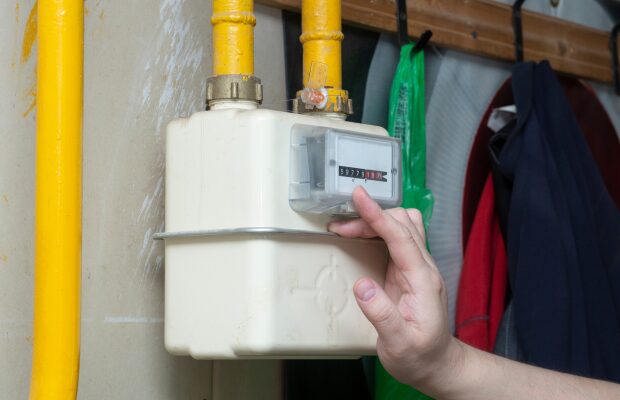Before winter starts to take hold in the UK, landlords should be looking to prepare their rental properties ahead of the colder months.
As well as freezing conditions, however, the British winter has a nasty habit of throwing high winds and heavy rain into the mix, so there’s lots to think about when it comes to rental property maintenance.
Here are seven things you should definitely be doing as a landlord this winter, to help keep your property in great shape and keep your tenants happy.
1 Service your boiler
Boiler breakdowns are sadly a common occurrence during the winter, when heating systems are switched on for the first time after a summer of no use.
As a landlord, an annual boiler service can help you keep your heating system in good working order, meaning no costly boiler replacements and no heating issues for your tenants.
2 Clear out your guttering
The autumn fall of leaves can cause big problems with blocked guttering and drainage.
Water damage caused by blockages from autumn debris is extremely common in rental properties, so put aside some time to check your guttering and downpipes.
Overflowing water can cause damp problems which will not only affect your tenants but will also put a large dent in your bank balance if you need to carry out major repairs.
3 Switch off your outside water supply
If your rental property has an outside tap, this can be a great addition for your tenants when it comes to washing cars and taking care of the garden during the warmer months.
During the winter, though, an outside water supply can be a problem if your pipes freeze up.
To avoid this, switch off the mains supply to your outside tap and open the tap itself. This will allow water in the pipe to flow out, meaning any remaining water can expand without splitting the pipe as the temperature drops.
4 Check the condition of your roof
Winter can really take its toll on your roof.
Broken or missing tiles caused by high winds can leave gaps for water to flow in, causing huge amounts of damage to your rental property and massive inconvenience for your tenants.
Cracked chimneys or pointing can also cause damp, so call in a roofer to take a look if you’re uncertain about anything and be sure to have problem areas repaired before winter tightens its grip.
5 Inspect trees close to your property
Winter in the UK can mean high winds, so if you have large trees close to your rental property, you should inspect these for damaged or rotting branches.
Large branches falling from trees during storms can cause major damage to windows and roofs.
So, take a look and trim back or remove any branches that look like they could fall when the wind gets up.
6 Check door and window seals
Maintaining Minimum Energy Efficiency Standards (MEES) is crucial, and you must ensure your property’s Energy Performance Certificate (EPC) rating is at least E to legally rent out your property.
While a good heating system, double glazing and sound insulation can all help provide a warm and welcoming home for your tenants and help you stay compliant, draughts can still be a problem in winter.
Go around and check the seals on your property’s doors and windows, where draughts can enter easily.
If there are any problems with caulk or sealant, carry out repairs to stop cold air coming into the property, while also supplying draught excluders for your tenants to use around doors.
7 Advise your tenants
As a landlord, you’re placing a certain degree of reliance on your tenants to keep your rental property well maintained during winter.
After all, they are the ones living in the property day-to-day.
Speak to your tenants and explain what they can do to help keep the property in good condition.
This could include:
- Keeping rooms well ventilated and using extractor fans to stop condensation and damp
- Keeping the heating on low if they leave the property overnight and letting you know if the property will be empty for more than 24 hours – for instance, if they’re going away for Christmas
- Letting them know where the stop cock is should a leak occur
- Advising them on who to contact should there be a weather-related emergency
- Keeping paths and driveways clear of debris like leaves, which can be slippery
Landlord FAQs
There’s a lot to think about when you’re a landlord – particularly over winter.
Here are the answers to some frequently asked questions around winter property maintenance…
How can I stop damp in winter?
Damp and condensation can be a big problem in rental properties during the colder months.
Most of the time, the best way to stop damp problems is by educating your tenants.
Advise them to keep the property well ventilated when cooking or bathing, as this can cause condensation on walls and windows, which can lead to mould.
More serious damp problems caused by structural issues, such as blocked guttering, an ineffective damp proof course or a damaged roof, can be extremely costly, but are avoidable with a proactive programme of annual maintenance.
At what temperature can pipes freeze?
Water in pipes can start to freeze at 4 degrees Celsius and will be fully frozen at 0 degrees.
Pipes that are exposed to cold air, or not insulated, will usually freeze quicker, sometimes even overnight in the case of outside pipes.
Once water in a pipe is frozen, it starts to expand, and this can cause the pipe to burst.
How do you keep your pipes from freezing in the winter?
Pipes in loft spaces should be lagged with an insulating material to protect them from cold air and freezing temperatures.
On top of proper insulation, keeping a consistent temperature can help avoid pipe splitting.
Modern thermostatic heating systems come with a minimum temperature, usually 5 degrees, which means even in the coldest conditions, the heating system will come on and stop water in pipes freezing.








